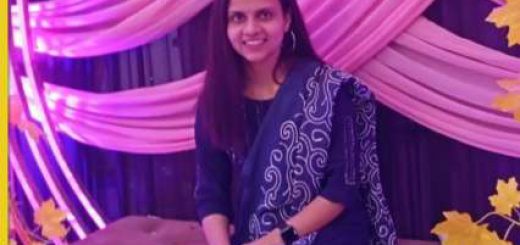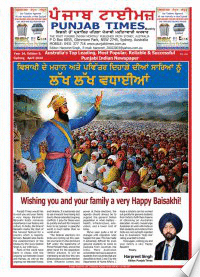In real life, I am a mix of Naina Talwar of ‘Yeh Jawaani Hai Deewani’ and Piku: Deepika Padukone
“I’d say I’m a mix of Naina Talwar of Yeh Jawaani Hai Deewani and Piku. Like them, I’m also a contemporary girl rooted in Indian values,” says Deepika.
Deepika Padukone on Piku, dealing with depression and finding the actor within.
Was there anything in particular that got you interested in Piku?
When (director) Shoojit (Sircar) and (writer) Juhi (Chaturvedi) were narrating the script to me, they read out the first scene and stopped to see my reaction. I asked them, ‘When can we start shooting?’ That one scene summarised the chaos of Piku’s life — the father-daughter relationship, how she is forever multitasking and taking care of her work and her family. I could instantly identify with the character. When I say I’m just like Piku, people don’t understand it. People say, ‘But you don’t get angry like Piku, your parents are not so old etc’. I felt there were several layers to her character. Piku is a correct representation of today’s youth. She is modern, progressive, yet rooted in her culture.
Out of all the characters that you’ve played, is she the closest to you in real life?
I’d say I’m a mix of Naina Talwar of Yeh Jawaani Hai Deewani and Piku. Like them, I’m also a contemporary girl rooted in Indian values.
Related
Did you anticipate Piku’s immense success?
For every film one hopes that people like it, but this one has gone to another level. People are saying that this is about their lives. Every father and daughter can relate to it. None of us expected such a warm reaction.
You’ve been in the industry for nearly eight years. You have also gone through a lean patch. How did you turn yourself around?
I don’t think my process of choosing films has changed. I’ve always relied on my gut instinct. I have to love a character, only then can I step into her shoes and make the audience believe in her. But yes, after Love Aaj Kal five-six films of mine didn’t work. People did not appreciate my films or my work. In hindsight, it was an important phase because it made me what I’m today. It gave me clarity. It made me pause and ask myself, ‘Who am I?’ and ‘What films do I like to do?’ It was only after that low phase that I found myself as a person and as an actor.
In your case, you also dealt with a public heartbreak. Did that impact your growth as an actor?
It’s not just the heartbreak, but all the other experiences that I’ve had careerwise or with my friends and family that have made me the person and actor that I have become.
Who shaped the actor in you?
Homi Adajania. At a time when I felt stuck, he made me believe in myself. I couldn’t have managed my performance in Cocktail if he wasn’t directing it. Farah (Khan) and Imtiaz (Ali) also contributed, but Homi is the one who unlocked the actor in me.
When did you first realise that you could act?
I don’t feel like that even today.
What about that walk that you did in Cocktail, that made everyone sit up and notice you?
(Laughs) I’m reaping the advantage of that one shot! But that entry walk was done towards the end of the shoot. By then, I’d been in Veronica’s character for so long that I could summarise her in that one walk. I’ll tell you something strange.
What?
I never see my takes. I’m shooting with Sanjay Leela Bhansali for Bajirao Mastani now and he keeps asking me to see the takes and tell him the ones I like. I always tell him that you are the director, you tell me if it’s okay or if you want me to do one more.
Do you like to see yourself on screen?
Once the film is done, I like to watch myself. I know some actors say that they get very self-conscious watching themselves on screen, especially if they have to cry as they don’t like the way their face contorts. I have no such issues.
What is that one thing that Bollywood has taught you?
Patience! In terms of my day-to-day life, dealing with people, my relationship with my work.
How do you deal with the side-effects of Bollywood — the controversies and the criticism?
I meditate. I breathe out what I can’t control and focus on the positives.
What about social media?
I never look at comments. I like to be clutter free. I respect that people have an opinion, but I don’t want to know every opinion out there. I like to keep it light.
Recently, you came out and spoke about your struggle with depression. How did you gather the strength to talk about such a personal battle?
I found the strength to talk about it from the people around me. My parents have been very supportive. In fact, it was my mother who identified that what I was going through was depression. My family and friends supported my decision to take medication. When I read that one in four people are depressed, I felt that I’m not the only one. I also wondered how many people must be fighting this battle all alone. I wanted to reach out and tell them that even I’m like you, and that it happens and it’s okay.
But there is a lot of cynicism whenever celebrities talk about personal challenges.
Yeah. I’m sure people must have said that it’s a publicity stunt or that I’m talking about it to promote a film.
How do you tackle that?
There is no calculation to my decision to talk about it. My job is to sell fantasies, but when I decided to talk about my depression, I didn’t think about the consequences or if it would affect my professional life or my endorsements. I did it because I felt I needed to give something back to people. I wanted to say it’s okay if you are there, I’ve also been there. That’s the first step, isn’t it? To accept what you are feeling. I read many articles that called me brave for speaking out, but I just did what I felt I needed to do.
What about the controversy regarding the My Choice video? You recently said, “No one wanted to know my opinion…”
It was a little disheartening the way it panned out, but I always keep the larger message in mind. There is always a positive side to everything and I’m glad that it made people a little more aware about women and their choices. I just had an issue with a couple of lines, but it’s okay.
Is it a conscious decision to be more socially responsible?
Why not? So much good has happened to me in the last couple of years. If by speaking about causes like depression and women’s empowerment, I can impact people’s lives positively, then why not?
So, how do you balance your personal and professional lives?
I thrive on multitasking. In this one year, my depression and Piku have been the highlights of my life. Both showed me the importance of friends and family, people who you love and those who love you. But we take them for granted the most.
When you gave your first shot for Om Shanti Om, did you imagine you’d become ‘number one’?
Never. I always thought that if I have to do it, then I should do it well.
Do you still feel like an outsider in the industry?
Not anymore. I can feel the love. I belong here now.
Source:: Indian Express





